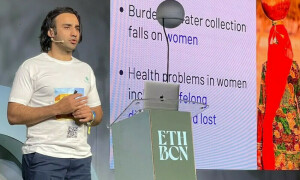PARIS: Here are five things to know about Zimbabwe, where the opposition aims to topple the party of late president Robert Mugabe in August 23 elections.
Mugabe’s long shadow
Zimbabwe’s leader of 37 years, Robert Mugabe, was a hero to many in Africa for helping liberate his country from white minority rule.
But as the years passed he grew increasingly tyrannical, rigging elections, terrorising opponents and running the economy into the ground with his violent brand of nationalism.
The former guerrilla fighter and teacher, who came to power in 1980, significantly improved education standards.
But he set himself on a collision course with the white minority and the West in 2000 when he encouraged black veterans of the country’s independence struggle to seize white-owned farms.
He was eventually deposed in 2017 by the army at the age of 93 after attempting to position his wife Grace as his successor.
Mugabe was succeeded by his military-backed vice-president Emmerson Mnangagwa, who has been in power ever since.
Stuttering economy
The country once dubbed Africa’s breadbasket has at times struggled to feed itself since the 2000s due to the farm seizures and economic mismanagement.
It hit rock bottom in 2008 when hyperinflation became so bad the central bank was forced to issue a 100-trillion-Zimbabwean-dollar note.
The situation eased when the government ditched the local currency and adopted the US dollar and the South African rand.
Fifteen years later, inflation is back with a vengeance, reaching an official 175.8 percent in June, although some economists estimate it to be much higher.
Basic foodstuffs are unaffordable for some.
Misspending and graft have been blamed for medicine shortages at public hospitals.
Severe brain drain
Zimbabwe’s economic and political turmoil has caused a mass exodus of skilled workers.
An estimated three million are believed to have migrated abroad, mainly to South Africa, but also to Britain, Canada and other countries.
The estimated US$1.8 billion sent home by the diaspora each year represents one of Zimbabwe’s biggest revenue streams.
But the country is struggling with a severe shortage of doctors and nurses and now its teachers are being courted by Britain.
Elephant problem
With an estimated 100,000 elephants, Zimbabwe has the world’s second-largest population after Botswana, which has ballooned on the back of a near-total ban on the ivory trade.
Officials say the numbers are unsustainable and are fuelling growing conflict with humans.
Wild animals killed 68 people in 2022 and 29 more so far this year, with elephants and crocodiles accounting for most of the deaths, according to Zimbabwe’s wildlife authority ZimParks.
Star storytellers
From Tsitsi Dangarembga to NoViolet Bulawayo, Petina Gappah and Alexandra Fuller, Zimbabwe is home to some of the most exciting names in contemporary African literature, nearly all of them women.
The country where late Nobel laureate Doris Lessing (“The Grass is Singing”) grew up has a strong literary tradition.
But before 1988, when Dangarembga brought out her semi-autobiographical tale of sexism and colonialism, “Nervous Conditions”, black female authors writing in English were conspicuously absent from Zimbabwe’s bookshelves.
These days women are the country’s foremost storytellers.
Bulawayo and Dangarembga have three Booker nominations between them, Gappah has won a Guardian First Book Award and Fuller has won acclaim for her account of growing up on a farm in Rhodesia.

























Comments
Comments are closed.